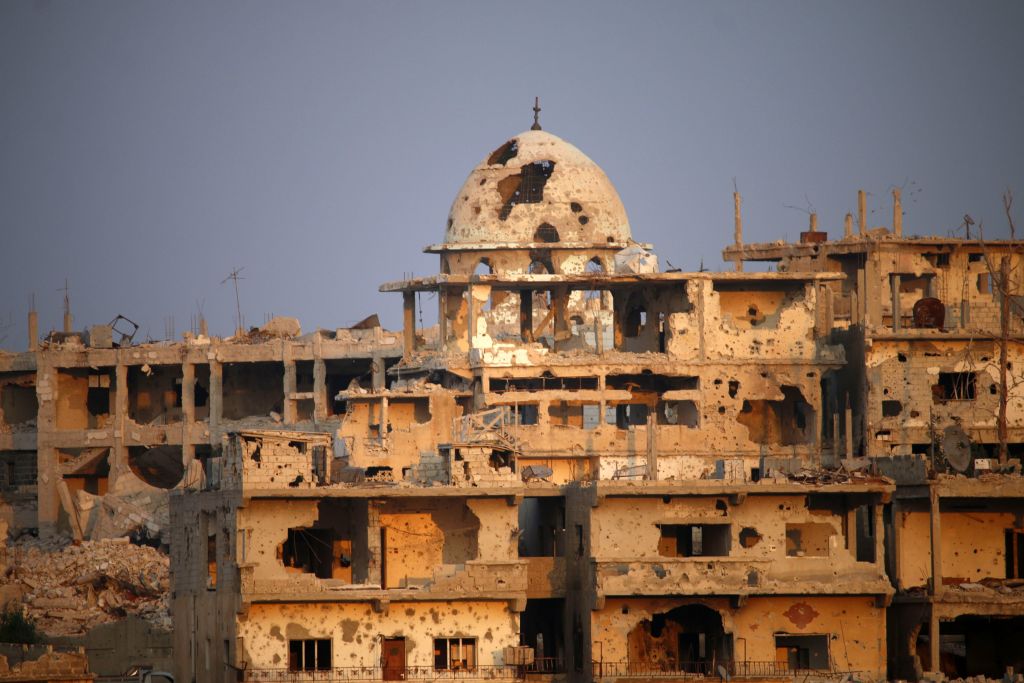Update: In a welcome statement on 8 September, Major General Abbas Ibrahim, head of Lebanon’s General Security Office, confirmed they would not be deporting the six Syrian men. Amnesty International calls on the GSO to implement this decision, and release the men. The organization further calls on the Syrian embassy to promptly return the men’s passports which they continue to hold until this moment. This case is a sore illustration of the consequences of the Higher Defense Council’s decision to deport refugees who enter Lebanon “illegally” after the date of 24 April 2019. Given that the right to seek asylum is a fundamental right and as Syria remains unsafe for returns, the decision must be promptly retracted and refugees coming from Syria should be afforded full protection in Lebanon.
****
Lebanon’s General Security directorate issued a decision on 5 September to deport six Syrian refugees accused of entering the country irregularly, despite the grave risks awaiting them in Syria. Heba Morayef, Regional Director for the Middle East and North Africa at Amnesty International, said:
“The Lebanese authorities are well aware of the grim fate which awaits these men back in Syria. In our latest report we documented how the Syrian authorities specifically target people who fled the country, subjecting them to torture, arbitrary detention and enforced disappearance upon their return to Syria. Deporting these men would be a flagrant violation of Lebanon’s international obligations, including under the UN Torture Convention.
“Our message is loud and clear: Syria is not safe for returnees. The Syrian authorities continue to commit appalling human rights violations and atrocities, and sending refugees back to Syria is tantamount to knowingly putting their lives in danger. We urge the Lebanese authorities to stop all forced deportations and respect pledges made on refugee rights, including on legal protection and nonrefoulement.”
As per the Lebanese law, these men should be able to legally challenge their deportation order. They should be allowed to meet their lawyers and to contact their families.
Lebanon is home to over 1 million Syrian refugees, who now make up more than a quarter of the population. In a December 2020 letter to Amnesty International, the General Security Office confirmed that the authorities had deported 6002 Syrians since May 2019, including 863 in 2020. Deportations were partially halted in 2020 due to the pandemic.
Our message is loud and clear: Syria is not safe for returnees.
Heba Morayef, Regional Director for the Middle East and North Africa
On 28 August, the Lebanese army’s intelligence directorate announced the arrest of six Syrian men outside the Syrian embassy in Baabda, after they received calls from the embassy inviting them to come collect their passports. The men were accused of entering the country illegally and handed over to the General Security directorate. They have not been allowed contact with their lawyers or relatives since their arrest. Their lawyers believe that at least one of them has been subjected to torture. Following complaints and several requests, the General Security gave their lawyers an ultimatum: secure the men with visas to a third country within 48 hours or they will be deported to Syria. Their lawyers tried to collect their passports from the embassy, but their requests were refused by embassy staff. The brother of one of the men also attempted to collect a passport today – following the General Security’s instructions that only a relative could do so – but to no avail. Lawyer Mohammed Sablouh has written to the UN Special Rapporteur on torture calling for intervention in the men’s case.
Five of the six men are believed to be from Daraa governorate in southern Syria, where violent clashes between Syrian government forces and armed groups have intensified in recent months. Hundreds have been killed or injured and tens of thousands of civilians have fled the area. Government forces have also placed a deadly siege on Daraa al-Balad.


